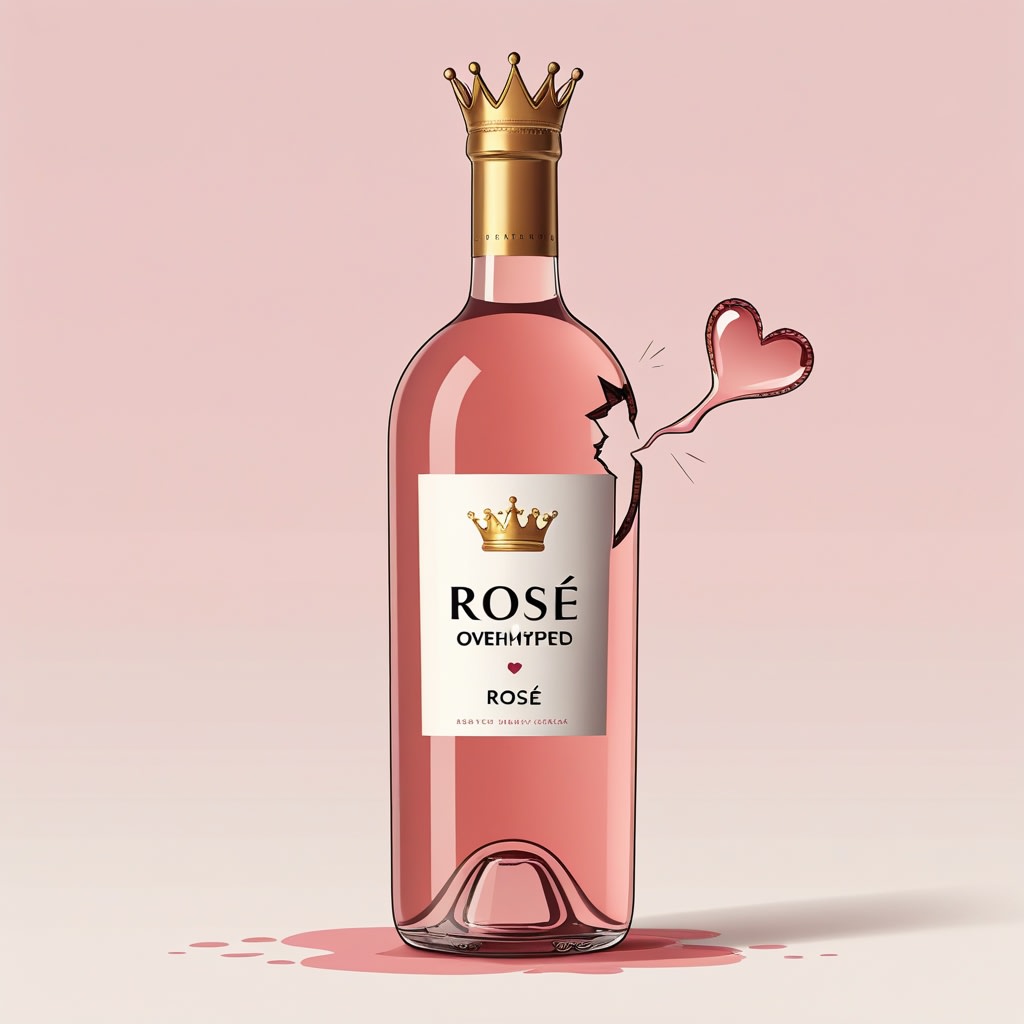When Meghan Markle launched As Ever Rosé, it wasn’t just about wine. It was about reclaiming the narrative. A soft, French-inspired lifestyle rebrand wrapped in elegance, pastel tones, and poetic messaging. But instead of celebrating her triumphant return to relevance, the world responded with a resounding eye roll—and a meme storm that hasn’t stopped since.
It began with the buzz. The Duchess of Sussex, now a self-declared entrepreneur, was stepping into the luxury wine market. The branding was heavy on symbolism: resilience, femininity, rebirth. Her website read more like a self-help book than a wine catalog. And that was the first red flag.
Critics, consumers, and comedians immediately took notice. John Stewart, never one to hold back, tore into the launch during a viral segment. “You’re not sipping history,” he said. “You’re sipping PR.” His takedown was brutal, comparing the wine’s taste to “lavender disappointment” and its price tag to “regret in a bottle.” Audience laughter echoed what many already felt: Meghan Markle’s wine wasn’t about taste—it was about her image.
The backlash wasn’t just funny—it was telling. As Ever Rosé was supposed to symbolize a refined Meghan, focused on creativity and substance. Instead, it came across as yet another overpriced product leaning on her name rather than quality. At $42 a bottle, people expected elegance. What they got, according to early reviews, was flat, acidic, and flavorless. One sommelier described it as “made for people who drink with their eyes.”
But the problem ran deeper than taste. It was the branding—the overuse of vague, inspirational language like “grace,” “softness,” and “empowerment”—that set critics off. There was little mention of grape origin, vineyard partnerships, or any credible winemaking expertise. It was, as one lifestyle columnist put it, “a Pinterest board disguised as a wine launch.”
Meghan’s team tried to spin the narrative. The wine was “a reflection of her journey,” a symbol of “hope through hardship.” But consumers weren’t buying the message—or the product. Online complaints about shipping delays and disappointing taste began piling up. Several customers demanded refunds. Others mocked the bottle’s aesthetic as “Instagram bait with no soul.”
Even Meghan’s loyal fans began expressing doubts. “I bought it because I wanted to support her,” one Twitter user posted. “But it felt like she was selling us a story, not a wine.” That sentiment echoed across Reddit threads and lifestyle blogs. The label’s signature phrase, As Ever, once Meghan’s elegant sign-off, has now become synonymous with satire. From As Ever Overpriced to As Ever Underwhelming, the internet had a field day.
The irony? Meghan had warned us this was coming. In a recent interview with Emma Grady, she claimed “every failure is a win”—a quote now being reposted alongside brutal wine reviews. If that’s true, she’s winning a lot lately. From a canceled Spotify deal to stalled Netflix projects, Meghan’s track record of turning buzz into success is shaky at best.
What As Ever Rosé proves is that branding can’t carry a bad product forever. In an age of celebrity entrepreneurship, consumers are becoming smarter. They don’t just want pretty labels and poetic mission statements—they want value. Authenticity. Taste. And when a $42 bottle fails to deliver on all three, the backlash isn’t just deserved—it’s inevitable.
Worse, the marketing turned personal. The website wasn’t just about the wine. It was about Meghan. Her journey. Her evolution. Her rebirth. But wine isn’t therapy. It’s not a memoir. And when you make yourself the center of the product, any criticism becomes a critique of you. That’s a dangerous game in business, especially when the reviews are this bad.
Industry insiders are already calling As Ever Rosé a reputational wound. Retailers are pulling back. Influencers who once backed her ventures are silent. Even Meghan’s most passionate defenders are growing weary of the self-importance that seems to saturate every launch. “It’s always about her,” one former supporter wrote. “Never about the customer.”
This misstep didn’t happen in a vacuum. It’s part of a pattern—projects built on personality instead of product. A children’s book ghostwritten with inspirational fluff. A podcast that delivered more buzzwords than substance. A blog relaunch that never materialized. And now, a wine that tastes like watered-down ambition.
John Stewart’s roast went viral because it tapped into a growing public sentiment: Meghan Markle has become more brand than person, more marketer than maker. And when he joked that her wine tasted like “ego in a bottle,” people didn’t just laugh—they nodded.
So what’s next? Meghan will likely continue launching, rebranding, reinventing. That’s what she does. But if As Ever Rosé teaches us anything, it’s that the public isn’t buying what she’s selling anymore—not unless the product speaks for itself. Because in 2025, consumers crave authenticity, not a Duchess monologue printed on the back of a wine bottle.
And if Meghan truly wants to reconnect with her audience, she’ll have to do more than bottle buzzwords. She’ll have to deliver real value. As ever… honest.
